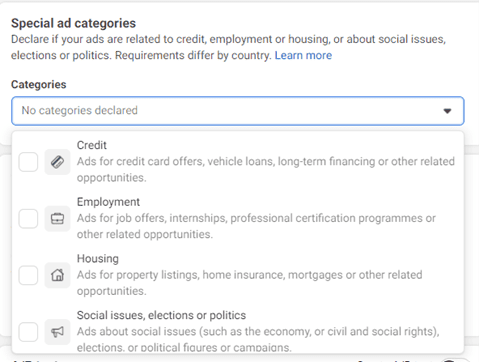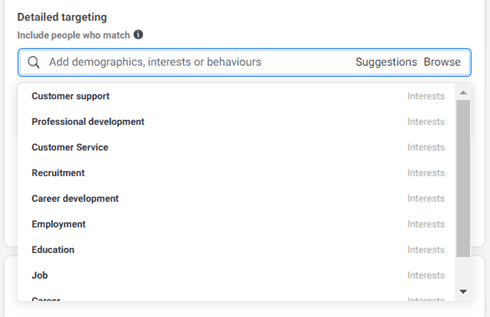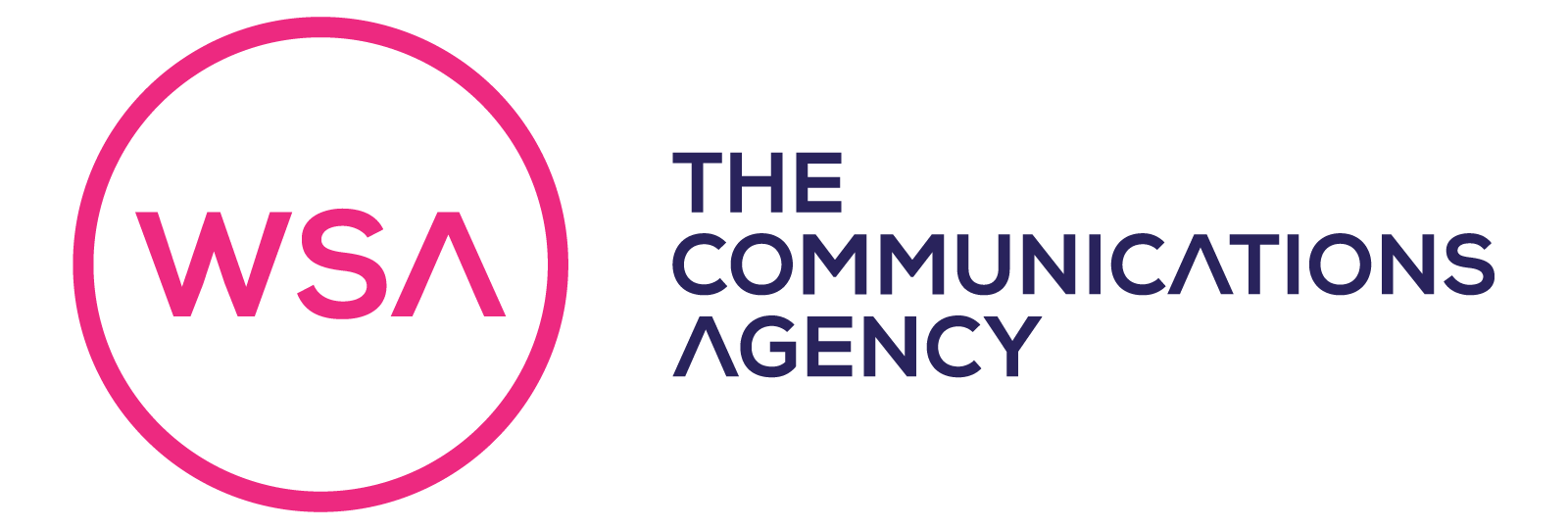Changes to the advertising policies within Facebook Ads in 2022 has meant that marketeers have had to be smart and savvy with the way they advertise for certain categories, specifically Credit, Employment, Housing and Social/Political issues. There has not been a published guide (at time of writing) that explains exactly what will be approved and rejected, but through trial and error, regularly advertisers have started to build a picture of what is deemed acceptable. At WSA, recruitment advertising plays a huge part in our day-to-day marketing activities, so here is what we’ve changed in order to ensure we successfully pass the approval process.
- Selecting the ad category on set-up:

It is imperative that when setting a ‘special ad category’ campaign up, you select the option that is relative for the campaign. If no category is selected and Facebook deems the ad related to one of the four options mentioned above, your ad will be rejected. This may not happen straight away, meaning that your budget will be spent incorrectly, so it is very important to do this on set up.
2. Amending the target audience:

Unlike the advanced targeting options found when setting up a generic Facebook Ads campaign, there are now certain limits when selecting demographics to target. For example, we are now only allowed to target working aged adults and some detailed targeting options, including demographics, behaviours and interests, are not available and we are also no longer able to use lookalike audiences. These changes mean that we must be smart about our use of targeting options, aiming for a broad demographic, but serving the ads to people who have already displayed an interest in job hunting and career development.
- Being creative with the copywriting:
When writing an advert, it seems you are now unable to use questions in the copy, for example, “Are you looking for a new opportunity?” might seem a straightforward statement, but as it contains a question mark we have found this would most likely be removed. We must instead think outside the box when drafting our words and remove anything that Facebook may flag and reject the ad for. “If you are looking for a new work/life balance *Business name* has various vacancies available” conveys the same message without the question mark being used. We would expect this version to pass any review. We have also found that shortening the copy for an ad improves the optimisation score, as something enticing and attention grabbing performs much better than several paragraphs of information that could be displayed on the landing page for the campaign instead.
The changes that Facebook have recently made to their ads approval process has certainly proved to be a challenge, but with a bit of research and thinking outside the box, it is still entirely possible to run an effective recruitment, housing, credit or social/political campaign that will lead to successful conversions.
